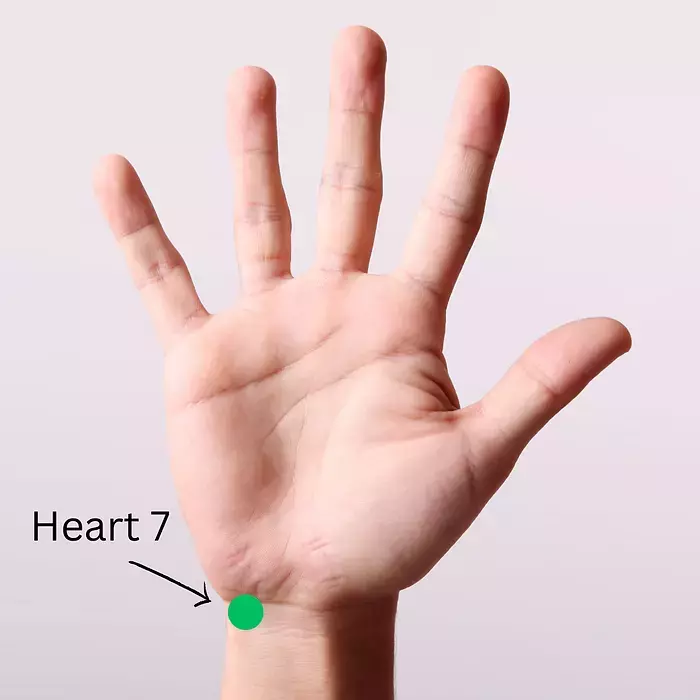
In Traditional Chinese Medicine (TCM), Heart Qi is a vital concept that extends far beyond the physical function of the heart. It represents the vital energy associated with the Heart organ system, which is considered the "monarch" of all organs. This central role means the Heart not only governs blood circulation but also influences emotional well-being, mental clarity, and overall balance within the body.
By understanding Heart Qi, we empower ourselves to take an active role in maintaining health and harmony. Let’s explore the significance of Heart Qi, the signs of imbalance, and the ways we can nourish and restore it for overall well-being.
The Heart and the Fire Element in TCM
The Heart is aligned with the Fire element, representing warmth, passion, and connection. It is also the home of the Shen (spirit)—a concept in TCM that encompasses consciousness, mental activity, and emotional balance. When Heart Qi is strong and balanced, we experience emotional stability, mental clarity, and a sense of inner peace. However, when it is imbalanced, it can lead to symptoms such as:
-
Insomnia or restless sleep
-
Palpitations or irregular heartbeat
-
Anxiety and nervousness
-
Poor circulation
-
Mental fog or difficulty concentrating
Recognizing these signs early allows us to take action to restore balance and promote emotional and physical well-being.
Restoring and Balancing Heart Qi
TCM offers a variety of methods to strengthen and balance Heart Qi. These include acupuncture, herbal medicine, dietary therapy, lifestyle adjustments, and acupressure. By incorporating these practices into daily life, we can support our heart health holistically.
Acupressure Point: Heart 7 (Spirit Gate, 神門)
One powerful point to regulate Heart Qi is Heart 7 (Shen Men, "Spirit Gate").
Location: Found at the wrist crease, on the radial side of the flexor carpi ulnaris tendon, between the ulna and the pisiform bones.
Functions & Benefits:
-
Tonifies Heart Qi, Blood, Yin, and Yang
-
Calms the Shen, alleviating insomnia, muddled thinking, and anxiety
-
Treats Heart palpitations, irregular heartbeat, and angina
-
Helps with emotional imbalances related to excessive stress
-
Works well with Pericardium 7 to address sweating issues
How to Use: Apply gentle pressure with your thumb for 2-3 minutes, using slow, circular motions. Breathe deeply and focus on relaxation.
Fire Element Essential Oils for Heart Qi
Essential oils aligned with the Fire element can help balance Heart Qi by promoting emotional warmth and circulation. Some beneficial oils include:
- Lavender (Lavandula) – Yun Yin Cao You: Calming, relieves anxiety and promotes restful sleep.
- Orange (Citrus sinensis) – Cheng Pi You: Uplifting, supports joy and emotional balance.
- Marjoram (Origanum majorana) – Niu Zhi Shu Cao You: Helps ease tension and emotional stress.
- Rosemary (Rosmarinus officinalis) – Mi Die Xiang You: Enhances circulation and mental clarity.
- Rose (Rosa spp.) – Mei Gui You: Nourishes the heart, fosters love and self-acceptance.
- Frankincense (Boswellia carteri) – Ru Xiang You: Grounds and calms the spirit.
How to Use: Diffuse essential oils, apply diluted to acupressure points, or add to a warm bath for relaxation.
Final Thoughts: Cultivating a Healthy Heart Qi
Your Heart is more than just a physical organ—it is the center of your emotional and spiritual well-being. By nurturing Heart Qi through acupressure, essential oils, stress management, and holistic practices, you can cultivate greater balance, joy, and vitality.
Practical Steps to Support Heart Qi:
-
Practice mindful breathing and meditation
-
Eat a heart-supportive diet rich in leafy greens, red foods (such as beets and cherries), and warm herbal teas
-
Engage in activities that bring you joy and connection
-
Seek professional TCM guidance for personalized care
If you're ready to take the next step in balancing your Heart Qi, consider reaching out to your local TCM practitioner - Dr. Melanie Snell. Your journey to emotional harmony and vibrant health begins here - Book in today!





